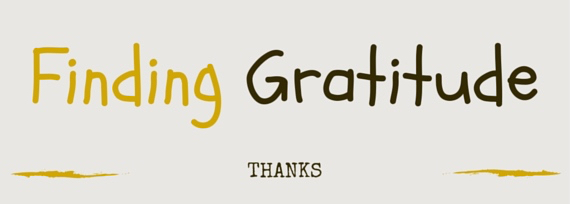On a hot summer day I was walking on a street with my dharma teacher. Although we walked at an easy pace, sweat ran down my face. Not being in the most desirable condition, I felt irritated and almost resentful towards the hot weather. My teacher sensed the frustration that I couldn't hide and said "I know it's hot. That's because it's summer. Don't you think it's nonsense to complain about the weather for being hot in summer?" Then she continued: "I'm grateful for this heat which will grow crops in farms. Fruits and vegetables need this heat to ripen and we consume them to nourish our body and mind. If you remember this, the heat wouldn't bother you that much and you may be able to appreciate it as well." Unlike me, she looked calm and peaceful. Every single word she spoke sounded right to me and with that recognition my frustration was released. That was about fifteen years ago but still I revisit this conversation to remind myself that gratitude is in the eyes of beholder.
There have been studies showing that people who are more grateful are happier, healthier, less stressed, and more satisfied with their lives and relationships. It's nice to have such papers to prove that gratitude enriches the quality of our life with happiness and positive emotions. At the same time, it's not difficult to see at an individual level that when we feel grateful, we become more content, generous and more connected with things and people around us. A feeling of thankfulness and appreciation doesn't come with destructive emotions like greed, jealousy, anger, dissatisfaction or resentment. Thus, many people in both secular and spiritual traditions encourage us to practice gratitude in a way to live a healthier and happier life.
Cultivating gratitude is also a key practice in Won Buddhism. And it's deeply related to the understanding of the interconnectedness of all. Based on the Buddha's teaching, we see that all phenomena arise in dependence on multiple causes and conditions. For instance, in order for us to drink a cup of tea, someone has to plant, harvest, manufacture, deliver and sell the tea. It also requires sun, wind, rain, teapot, cup, electricity and all other necessary things and conditions for this very simple act of drinking tea. How about food we eat, clothes we wear, house we live in and all goods and services we use on a daily basis? They all come from countless people and conditions around the world.
Sotaesan, the founding master of Won Buddhism, pointed out that each being in the universe is interrelated to and indebted to other beings for its existence. This realization of interconnectedness gives rise to a sense of gratitude and appreciation. Thus, our practice is not only to be aware of this interconnectedness but also to see it from the eyes of gratitude so that we become more content, humble, and selfless.
"Finding gratitude" is an expression we use to describe gratitude practice in Won Buddhism. It indicates that we are not creating or changing anything in order to feel grateful, but instead we are aware of what is already here and realize how we are related to them. It reminds us that there is always something to be grateful for and it all depends on what we see and how we see it. Sotaesan described it this way:
Sentient beings turn benefactors ten times over into an object of resentment if he fails just once to favor them. Bodhisattvas (awakened ones) thank a person who has wronged them even ten times over if he favors them just once. Therefore, sentient beings discover the harm within grace and bring on anxiety and discomfort; Bodhisattvas find the grace within harm and bring on peace and comfort. (The Scriptures of Won Buddhism, p.363)
My teacher from the story above didn't like the summer heat at all, but still she was able to see and accept it through the eyes of gratitude with deep understanding of interconnectedness of all. It made me realize that gratitude is in the eyes of beholder not in favorable conditions. It's easy for us to think that when things are going well, we feel grateful but actually when we are grateful, things are going well because we are more likely to be calm, wise and open minded with gratefulness.
Gratitude is an attitude that we can learn and develop. That is why it makes so much sense to practice gratitude. How do we practice gratitude? My humble suggestion for the gratitude practice is as follows.
Take a deep breath to calm the mind.
Set an intention to find gratitude in any given moment.
Remember how everything is interrelated and supporting one another.
Be grateful for what's here and now.
